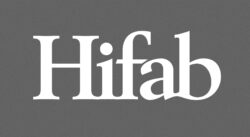ODI Pharma announced on June 25th that the company has completed a first delivery of products to the Swiss market, a new market for ODI Pharma. The delivery will be made to the leading medical cannabis provider in Switzerland and will be facilitated through ODI Pharma’s Swiss subsidiary.
The delivery is the first one outside of the collaboration agreement with Synoptis Pharma, which includes 23 countries in Eastern Europe, why it marks an important strategic milestone for ODI Pharma and in line with the company’s goal to widen the company’s market footprint and adapt to changing market dynamics. This first order to the Swiss market is a first step towards a wider market engagement, even though it is less significant in terms of order value.
The Swiss Medical Cannabis Market
Switzerland has one of the oldest medical cannabis schemes and most developed CBD industries, but patient numbers have remained low as access has been limited and costs has remained high. However, from august 2022 cannabis for medical purposes, classed as containing more than 1% THC, was reclassified from a ‘prohibited narcotic’ to a ‘controlled substance’. Before the change, patients were required to apply to the government for an exceptional license to get access to medical cannabis. With the reclassification, any physician with the correct operating license can prescribe medical cannabis and permits from the government are no longer required. After the change, the Swiss market has returned to growth after several years of a declining number of patients, and Statista estimates that sales of medical cannabis will grow by approximately 8.3% in 2024, reaching USD 24.6m.
Analyst Group’s View of the Market Entry
In our equity research report on ODI Pharma, we stated that the company is dependent of the collaboration agreement with Synoptis, which poses a risk in the event that the agreement is terminated for any reason. Additionally, ODI Pharma can expand to new markets, such as Western Europe, on their own, which is expected to be a long term strategic objective for the company. The entry on the Swiss market marks a first step in this direction to increase revenue diversification and hence the reliance on the agreement with Synoptis. Moreover, the Swiss market is expected to grow and is also seen by industry experts as a candidate to be the next European country to legalize cannabis for recreational use. Although this is not a market addressed by ODI Pharma, it is expected that such a development could increase the general acceptance of cannabis, which could, in turn, benefit the medical market and sales of ODI Pharma’s products.
Since the delivery is made to the leading medical cannabis provider in Switzerland, we expect the business model to be similar to the collaboration with Synoptis Pharma, i.e., that ODI Pharma acts as an intermediary between the supplier and the distributor, while also outsourcing costs such as product shipping. This means that the costs associated with the Swiss expansion are expected to be low and that ODI Pharma is estimated to be able to keep a low cost base going forward, paving the way for improved profitability as the company scales up in various markets. Although the Swiss market is not initially expected to contribute significantly financially, we see potential for higher sales volumes going forward.
How Analyst Group sees ODI Pharma as an investment
The third quarter was a breakthrough quarter for ODI Pharma, with net sales amounting to SEK 13.9m and an EBIT margin of 11% during the company’s broken fiscal year, proving the significance of the collaboration with Synoptis Pharma and the scalable business model. ODI Pharma’s unique business model has resulted in the company being, and expected to remain, one of the very few profitable companies in the cannabis industry. According to Analyst Group, this presents an attractive investment opportunity. With estimated net sales of SEK 127m by 2025/2026, and with an applied P/S multiple of 2.8x, a potential present value per share of SEK 17.4 is derived in a Base scenario.




